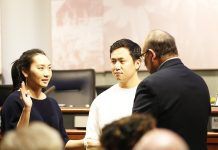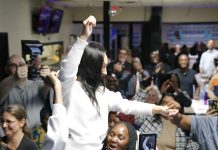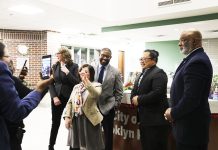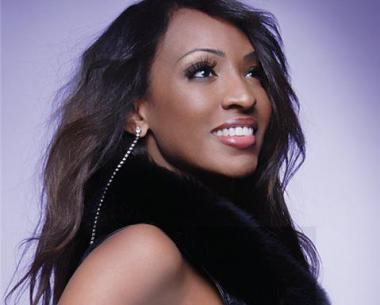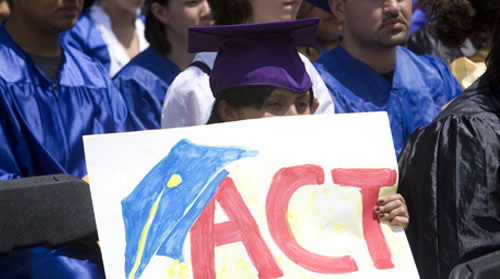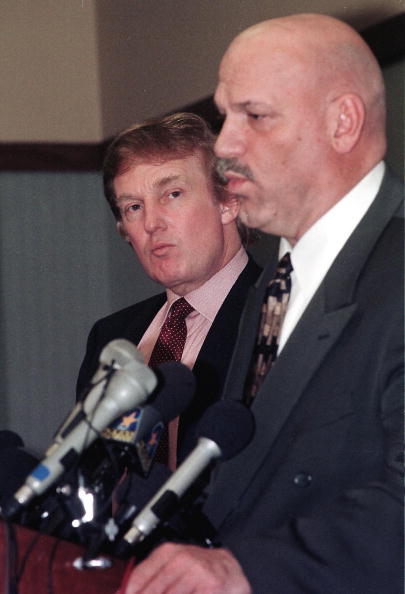
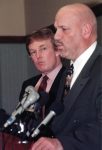
Almost 10 years since Brooklyn Park became a majority-minority city, and 66 years since its incorporation as a Township, the sixth largest city in Minnesota has yet to elect a mayor that is not white.
The state where George Floyd was killed by a policeman that lived in a suburb not too different from Brooklyn Park, has forced Minnesota to confront its legendary racial disparities in most facets of its society, including elective office.
That reckoning for Brooklyn Park came quickly on the heels of Floyd’s death when in November it elected its third person of color into the city council. There are six elected council members plus the mayor for a seven-person council. African American Boyd Morson won in November by just over 500 votes, beating the DFL endorsed Christian Eriksen. Council elections are non-partisan but the DFL has not been shy about endorsing candidates in those races.
Susan Pha, was the first person of color elected to the council in 2017, becoming the first Hmong American to do so. By electing Pha, voters in the city set in motion the process to realign the council to better reflect the city’s demographics. One year after Pha’s election, Liberian American Wynfred Russell was elected to the council.
After the 2020 general election and the ascendancy of Morson, the council is now close to 50 per cent people of color.
In last year’s general election, then Mayor Jeff Lunde got elected to the Hennepin County Board of Commissioners representing District 1 which includes Brooklyn Park. His move to the county seat created a rare open seat that has to be filled by a special election as stipulated by the city charter.
Electing a mayor of color in August will make the council majority-minority for the first time in the city’s history.
February 16 was the last day to file for a special primary election that will be held on April 13 to narrow the field to two candidates that will proceed to the August 10 special election. Seven candidates have filed to run in the special election with five them filing on the very last day. Candidates can withdraw their candidacy by February 18 – 48 hours after the filing period closed.
Absentee voting for the primary will begin on February 26 through April 12.
Four of the seven that have filed are Black men, two of them sit on the council already – Wynfred Russell and Boyd Morson. Hollies Winston and Benjamin Osemenam round up the slate of Black candidates running.
The other three include two white women and a white man. One of the women, Lisa Jacobson easily won reelection to the council in November’s election beating Nigerian American engineer Benjamin Osemenam. Osemenam, unable to convince voters in the East District to elect him in November, seems convinced he can convince voters citywide to entrust him with the mayorship. He was among the last-minute filers on February 16. November was his second unsuccessful attempt to join the council.
Yelena Kurdyumova, who can best be described as a fringe candidate, is the other white woman bidding to be mayor. After a landslide loss to Susan Pha in last year’s primary where she only managed to garner 385 votes to Pha’s 1,765, she joined former President Trump in denouncing mail-in ballots as fraudulent and asking residents to write her in as a candidate in November.
‘Culture of hostility’
Mark Mata, was a member in the previous council but did not seek reelection in November. He is the only white man in the race. It appears the decision not to run was informed by his desire to be mayor. Mata was in 2017 accused by fellow council members of a “culture of hostility” which cost the city $173,000, so that the city’s beloved fire chief, Ken Prillaman, could leave without suing the city.
Mata was a paid on-call fire fighter at the fire department and was accused of using his council position to intimidate the fire chief. Fellow Republican Jeff Lunde who was the mayor then said “We are here because of the culture of hostility created by a council member.” The council member in question being Mark Mata. Mata at one time served on the council at the same time with his father Bob Mata, representing different districts. The elder Mata was defeated in his reelection bid in 2018 by Wynfred Russell.
The Frontrunners
When given the chance since 2016, Brooklyn Park voters have shown the proclivity to go with a person of color at the council. In three consecutive election cycles since the historic election of Pha, the voters have chosen at least one person of color.
Are the voters ready for a mayor of color this year?
Wynfred Russell, one of the candidates said “it is about time we have someone of color in the mayoral seat,” when he spoke with Mshale during an interview soon after declaring his bid, referring to the changed demographics in the city that call for it.
If the voters are ready for a person of color to be mayor, they will probably take a look first at Hollies Winston. Of all the seven candidates running, he is the only one that has run a substantive citywide race. He faced off against Jeff Lunde in the last mayoral election in 2018 and received 13,203 votes to Lunde’s 15,174. 66% of the 43,460 registered voters turned out to vote that year.
Wynfred Russell, Mark Mata and Lisa Jacobson are the other three candidates besides Winston with the name recognition likely to propel them past the April primary. The three have run winning council races but none has contested citywide.
Charges of racism
Recent events might suggest how a white candidate like Lisa Jacobson might be poorly positioned for the times we are in. In a blistering attack on November 14, 2020 soon after it became clear the office of mayor will be vacant, Abdullah Kiatamba, a mercurial leader and grassroots organizer in the Liberian community called Jacobson “racist, anti-immigrant and dangerous.” The accusation sparked an intense discussion on Liberians in Minnesota, a popular Facebook group with over 8,000 members, many of them voters in Brooklyn Park. Some of the angry comments directed at her by the group’s members are not fit to publish.
Mshale spoke via phone with Kiatamba in Liberia, where he is currently attending a funeral, to seek clarity on his criticism of Jacobson. Kiatamba said the Republican councilwoman is very good with superficial interactions with the Black community “but works against our top interests such as when we were trying to get the city to work with the (West African) Ebola Taskforce.”
Another Brooklyn Park resident expressing concern with the Jacobson candidacy is Hassanen Mohamed.
“Lisa does not have the leadership skills needed to get our city where it needs to go,” Mohamed said. “We need a mayor that understands all the communities that live in this city.”
Mohamed recalled what he calls a defining moment in the character of Lisa Jacobson. In 2017 as then president Trump moved to restrict immigration and ban travel from majority Muslim countries, cities around the country started issuing resolutions in support of immigrants and Muslims. Councilwoman Susan Pha, then the only person of color in the council introduced such a resolution in a February 13, 2017 council meeting. “Among those pushing back was Lisa,” said Mohamed. Jacobsen eventually voted in favor of what Councilwoman Pha said was a “watered down” version, after a lot of waffling, according to Mohamed.
In regards to Mata, after costing the city $173,000 in the separation agreement with popular former Fire Chief Ken Prillaman, it is difficult to see how he gets past the primary. Memories of that settlement still linger among city residents. His decision not to seek reelection might have been a nod to the new realities in the city but could also have been a positioning move to run for mayor.
As of the time of this writing, the Mata candidacy was the only one without a website or email address listed on the city’s website that shows candidates that have filed and cleared to be on the ballot.
The crowded field, which was predicted by the former mayor, has come to pass and it is worrying those hoping to see a person of color elected as mayor. With seven candidates running in the primary, one only needs a plurality of voters to be among the top two. Even with their reduced numbers, whites still constitute 45% of the city. The DFL party machine is expected to pull all the stops to get Winston past the primary and they might prevail given what happened in 2018 when Winston was also the party’s endorsed candidate. Congressman Dean Phillips who represents the city in Congress has endorsed him, as has the Speaker of the Minnesota House of Representatives, Melissa Hortman. The speaker lives in the city.
Should Winston come out on top, it will matter a great deal who comes in second in April. Some of the white voters, because of the DFL endorsement will go for Winston, but many of them, appalled at Mata’s past behavior, will for the most part line up behind Jacobson giving her the plurality she needs to get past the primary.
Lyna Nyamwaya is the founder and president of the African Nurses Network which boasts a strong membership base in the city. Speaking to Mshale in her private capacity, she sounded exasperated at the number of Black candidates running, saying it will aid in frustrating the dream of a mayor of color for the city.
“From past experience and history, divide and conquer is still very existent. If the Black brothers unite, umoja ni nguvu (Swahili for unity is strength). Dividing the Black voters, Africans and African-Americans, gives the other candidates more votes,” Nyamwaya said.
About Tom Gitaa Gitaa, Editor-in-Chief
Born and raised in Kenya's coastal city of Mombasa, Tom is the Founder, Editor-in-Chief and Publisher of Mshale which has been reporting on the news and culture of African immigrants in the United States since 1995. He has a BA in Business from Metro State University and a Public Leadership Credential from Harvard’s Kennedy School of Government. He was the original host of Talking Drum, the signature current affairs show on the African Broadcasting Network (ABN-America), which was available nationwide in the United States via the Dish Network satellite service. On the show, he interviewed Nobel laureates such as 2004 Nobel Peace prize winner, Professor Wangari Maathai, the first woman from Africa to win the peace prize and heads of states. Tom has served and chaired various boards including Global Minnesota (formerly Minnesota International Center), the sixth largest World Affairs Council in the United States. He has previously served as the first Black President of the Board of Directors at Books for Africa. He also serves on the boards of New Vision Foundation and the Minnesota Multicultural Media Consortium. He has previously served two terms on the board of the United Nations Association. An avid runner, he retired from running full marathons after turning 50 and now only focuses on training for half marathons.
- Web |
- More Posts(455)


 (5 votes, average: 4.00 out of 5)
(5 votes, average: 4.00 out of 5)